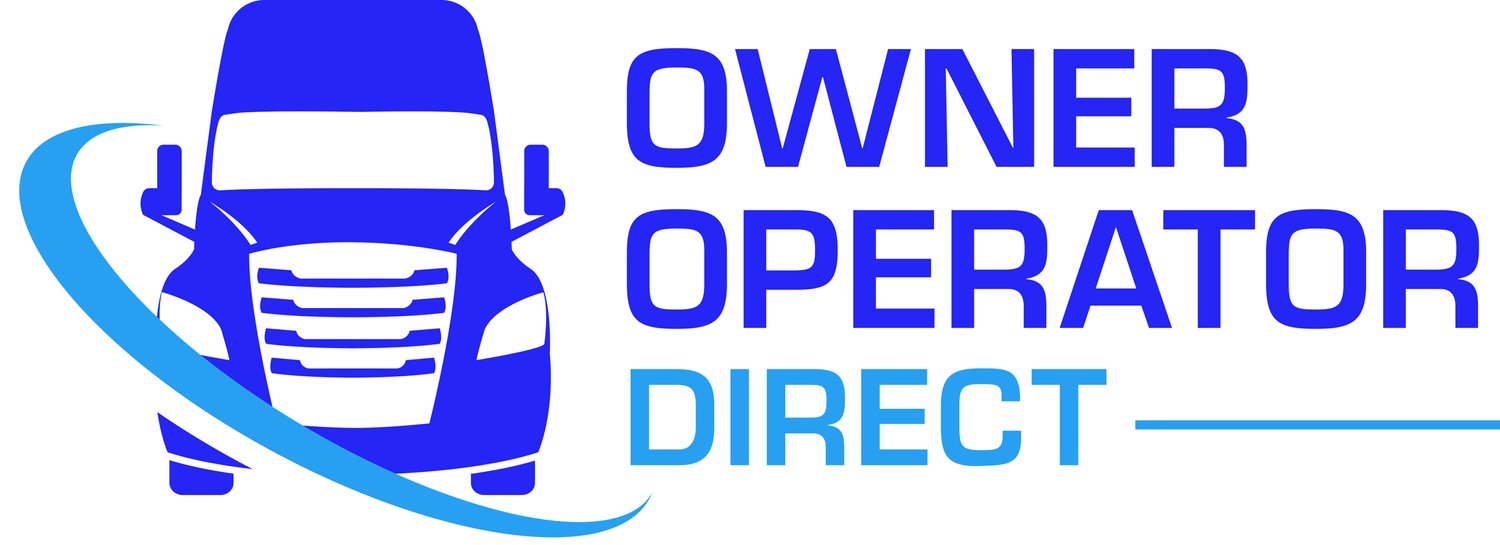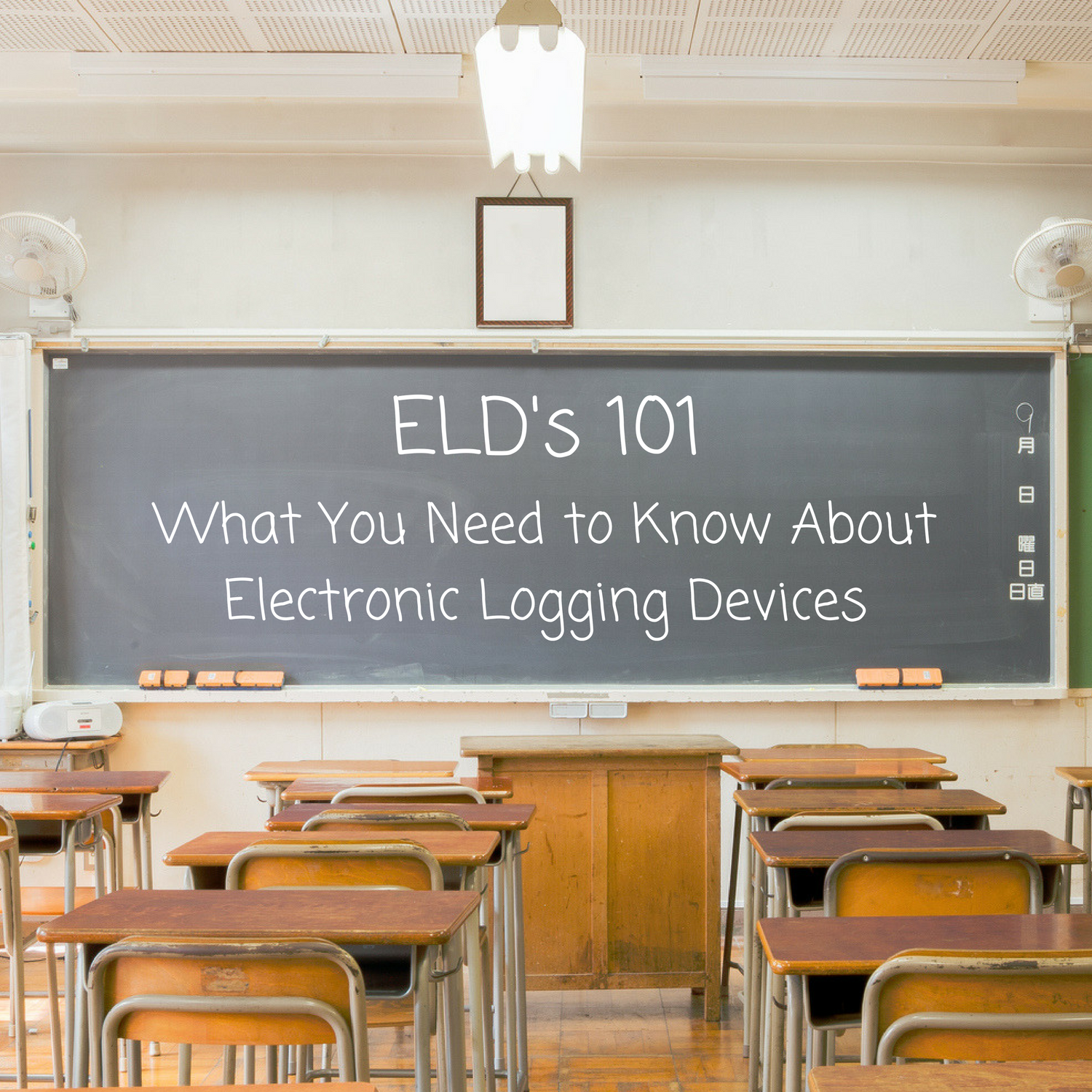ELDs 101 - A Guide to Electronic Logging Devices
Electronic Logging Devices
Everything We Know About ELD's So Far
Scheduled to become effective on December 18, 2017, the ELD mandate will significantly impact federally-regulated carriers in both the commercial and passenger transportation (bus & motorcoach) and trucking industries until and beyond its final full compliance deadline of December 16, 2019.
To help understand the rule, who it affects, the timeline for implementation and the penalties for drivers and carriers found to be non-compliant, Owner Operator Direct has prepared the following summary.
We urge you to immediately begin your company's review and analysis of the rule and its requirements to avoid the consequences and penalties associated with non-compliance that will affect your drivers and potentially your USDOT rating.
FMCSA's Electronic Logging Device (ELD) Mandate
Key Requirements
Compliance Deadlines
Affected Drivers
Exemptions
Rented or Leased Vehicles
Grandfathered AOBRDs
Non-Compliance Penalties For Drivers
Non-Compliance Penalties For Carriers
ELD Vendor Options
THE ELD RULE
The FAQs document published by the FMCSA (found on https://www.fmcsa.dot.gov/hours-service/elds/faqs) provides a good amount of details on the ELD mandate. Excerpts of general pertinence are reflected below. For more information, please refer to the list of additional resources at the end of this document.
Key Requirements:
Requires ELD use by commercial drivers who are required to prepare hours-of-service (HOS) records of duty status (RODS).
Sets ELD performance and design standards, and requires ELDs to be certified and registered with FMCSA.
Establishes what supporting documents drivers and carriers are required to maintain.
Prohibits harassment of drivers based on ELD data or connected technology (such as fleet management system). The rule also provides recourse for drivers who believe they have been harassed.
What Are the Compliance Deadlines?
Carriers must evaluate and select ELDs, and ensure they are installed and drivers and administrative staff are trained to use them by the deadline that applies - December 18, 2017 for those using paper logs or logging software or December 16, 2019 for carriers using automatic onboard recording devices (AOBRDs). More specifically:
February 16, 2016 (ELD Rule Effective Date) - December 18, 2017
PHASE 1 — AWARENESS AND TRANSITION PHASE
The two-year period following publication of the ELD rule in the Federal Register. During this time, motor carriers and drivers subject to the rule should prepare to comply and may voluntarily use ELDs. Motor carriers and drivers subject to the rule can use any of the following for RODs:
Paper logs
Logging software
AOBRDs
ELDs that are registered and listed on the FMCSA website
December 18, 2017 - December 16, 2019
PHASE 2 — PHASED-IN COMPLIANCE PHASE
The two-year period from the Compliance Date to the Full Compliance Phase. Motor carriers and drivers subject to the rule can use:
AOBRDs (installed prior to December 18, 2017)
ELDs that are registered and listed on the FMCSA website
December 16, 2019
PHASE 3 — FULL COMPLIANCE PHASE
All motor carriers and drivers subject to the rule must use certified, registered ELDs that comply with requirements of the ELD regulations. Note: Any §395.15-compliant AOBRDs that are installed before December 18, 2017, can be used until December 16, 2019. At that time, the AOBRDs must either be updated to the ELD specifications or removed from service and a new device installed that meets the ELD technical specifications.
Who must comply?
The ELD rule applies to most motor carriers and drivers who are currently required to maintain RODS per Part 395, 49 CFR 395.8(a). The rule applies to commercial buses as well as trucks, and to Canada- and Mexico-domiciled drivers.
Who is exempt?
Drivers who operate under the short-haul exceptions may continue using timecards; they are not required to keep RODS and will not be required to use ELDs. Additionally, the drivers listed below are not required to use ELDs, but are still bound by the RODS requirements in 49 CFR 395 and must prepare logs on paper, using an AOBRD or with a logging software program when required:
Drivers who use paper RODS for not more than 8 days out of every 30-day period.
Drivers who conduct drive-away-tow-away operations, where the vehicle being driven is the commodity being delivered.
Drivers of vehicles manufactured before model year 2000.
What about rented or leased commercial motor vehicles?
Motor carriers or drivers that operate rented or leased commercial motor vehicle are required to record hours of service with an ELD, unless the driver or commercial motor vehicle is exempt from the requirements of the ELD rule.
What is a "grandfathered" automatic onboard recording device (AOBRD)?
A "grandfathered" AOBRD is a device that a motor carrier installed and required its drivers to use before the electronic logging device (ELD) rule compliance date of December 18, 2017. The device must meet the requirements of 49 CFR 395.15. A motor carrier may continue to use grandfathered AOBRDs only until December 16, 2019. After that, the motor carrier and its drivers must use ELDs. See Section 395.15 (a) of the ELD final rule.
What is the penalty to a driver who is not in compliance?
The Commercial Vehicle Safety Alliance (CVSA) has existing criteria to place a driver out of service during a roadside inspection for a lack of Record of Duty status. It was amended in March, 2017 to include non-compliant ELDs and/or non-compliant usage of ELDs. Source: http://cvsa.org/wp-content/uploads/April-1-2017-OOSC-Changes-Website-Version.pdf
What will happen to a carrier that is not in compliance?
Carriers not in compliance will rack up violations/fines and see its Hours of Service (HOS) BASIC percentile worsen. FMCSA safety investigations will likely result in acute violations and the carrier may end up seeing a negative impact on its safety rating and/or lose its operating authority.
ELD Vendor Options
With over 50 different ELD solutions currently in the marketplace, selecting a vendor can be a challenging process. This is complicated by the fact that the FMCSA does not certify which products will meet all the technical requirements of the ELD mandate. This is, in reality, a "self-certification" process. The FMCSA also does not have mechanisms in place for manufacturers to test to ensure that the data capture and output of these devices will be compliant with specifications. To help carriers with their selection, the FMCSA has posted a list of Registered ELDs and has made available a checklist of functions that an ELD solution must provide at a minimum (see https://www.fmcsa.dot.gov/hours-service/elds/choosing-electronic-logging-device-checklist).
USEFUL ELD RESOURCES
Owner Operator Direct provides top notch commercial trucking insurance to owner operators, whether operating with authority or as leased drivers. For a no-obligation quote, give us a ring at 800-499-1044 (Monday-Friday 9-5 pm ET) or answer some questions online and we'll email you one.

